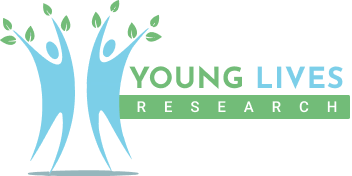Decolonizing Planetary Health through Williche Ecologies of Repair
Led by Visiting Research Fellow, Pablo Aranguiz, and with seed funding from the Dahdaleh Institute for Global Health Research, This work was designed to build on long-standing, trusted relationships with the Williche people and communities of Chiloé, Chile, in order to contribute to a deeper reflection on how ecologies of repair contribute to the re-establishment of a reciprocal relationships between human and environmental wellbeing for planetary health.
Challenge
In the channels of the Chiloé archipelago, the consequences of historic and ongoing colonial environmental injustice, dispossession from traditional lands, and disconnection from cultural practices have disproportionately impacted Indigenous Williche youth and their communities, resulting in significant health disparities. In this scenario of ecological precarity, a series of practices of resistance, remediation and mutual care have emerged within the Williche Indigenous people, generating reparative processes and/or initiatives for the transformation of damaged ecologies and communities. During 2018, members of the Williche community of Weketrumao carried out a process of repairing an old water mill of Spanish origin through a series of mingas (collective work) recorded through the filming of a video documentary called "El Molino del Abuelo Juan" (Grandfather Juan’s Mill). It is through this environmental kinship study (Kanngieser & Todd, 2020) that we work with youth and their community members to reflect on how processes of intense damage trigger creative social forces to rebuild broken relationships, damaged ecosystems and obsolete artifacts, through the explicit recognition of agency and practices involving people, animals, objects and other materials.
Key Objectives
To understand, through a post-humanist perspective, how Indigenous Williche reparative ecologies contribute to planetary health and leverage findings into a fulsome, larger-scale funding proposal.
To understand the role that technology (artifacts, practices and associated knowledge) can play in the processes of co-constructing reparative futures for planetary health.
To analyze the educational possibilities offered by Williche relationships with time and place in order to imagine futures that are reparative rather than reproductive of past and present injustices.
To understand the ways in which Williche reparative ecologies inform research with/by/for youth.
To support intergenerational Williche connections and conversations in consideration of Land Back action and activities
Methods
Youth- and community-focused data collection activities include:
Nucham and Chafün Williche : Traditional Williche gatherings and conversations with members of Weketrumao Williche community.
Individual in-depth interviews with key community members : Qualitative interviews will be conducted with Lonko (Chief), Elders, youth and other members of the Williche community who participated in the mill repair process.
Talking Circles with Williche youth : An exhibition of the documentary ‘El Molino del Abuelo Juan’ followed by a round table discussion.
Secondary data sources collection : Documentary analysis of the video ‘El Molino del Abuelo Juan’ and bibliographic analysis of information related to water mills in Chiloé.
